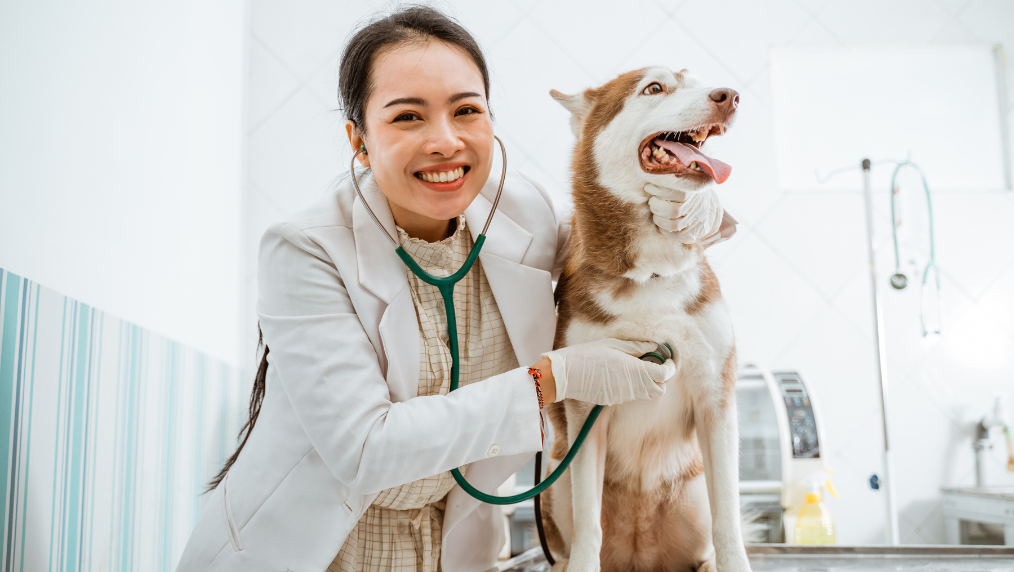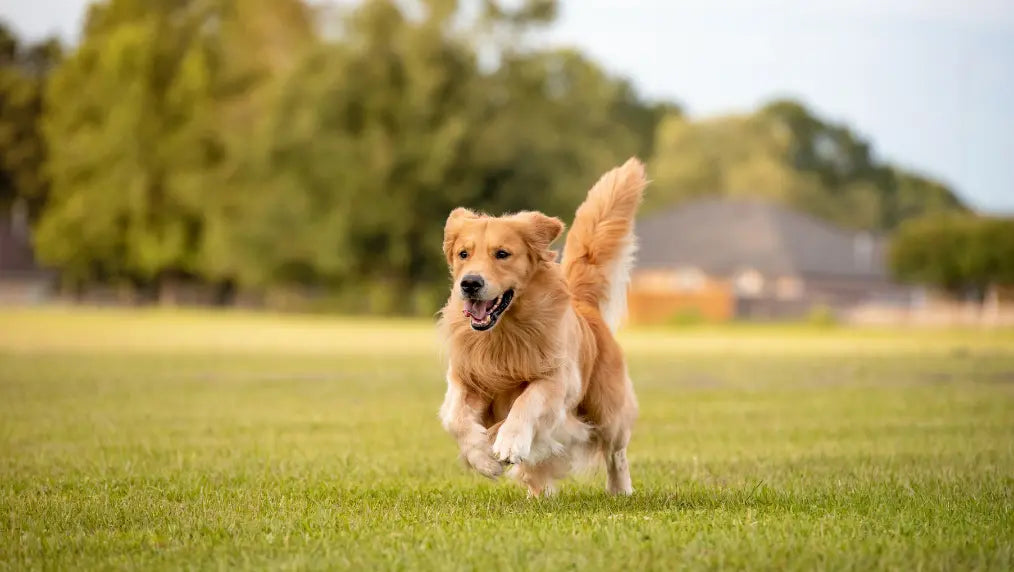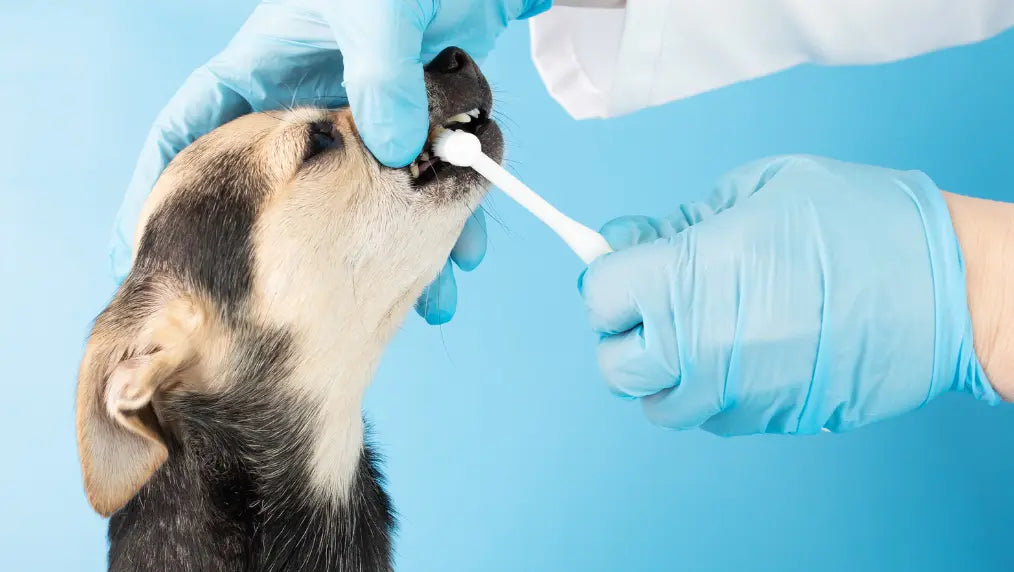Dogs are known for their playful and affectionate nature, but occasionally, they exhibit behavior that can be concerning, such as nipping or biting. This behavior can be confusing and sometimes alarming for pet owners. In this blog post, we'll delve into the reasons why dogs nip and bite, and provide practical solutions to address and manage this behavior.
Why Do Dogs Nip & Bite?

Have you ever played with a dog who won’t stop nipping and biting at you? It can be funny at first, but no one wants to be an actual chew toy for their pooch. While nipping, mouthing, and biting are common behaviors in dogs, especially in those mouthy teething puppies, if left unchecked, this behavior can become worrying and problematic.
If you’re having trouble getting your dog to stop nipping and mouthing, you’re not alone. Whether you’re a beginner or a seasoned dog owner, this guide will help you understand the reasoning behind these behaviors and provide the tools you need to train your dog like a pro and deal with dog nipping and biting once and for all. This applies to puppy play biting and dog nips in adult dogs.
A dog bites for various reasons. For puppies, mouthing nipping is a normal part of teething, as well as exploring their environment. Dogs also nip and sometimes puppies bite during play, when overexcited, or when feeling stressed or anxious. Pain is also a common cause of dog biting. Let’s explore some more reasons why puppies nip and dogs bite.
Puppy Bites and Teething

Puppies, like human babies, go through a teething phase. During this period, their gums can become sore and irritated. Nipping and biting are their way of alleviating discomfort. It's essential to provide appropriate chew toys to redirect this behavior.
Playfulness
Normal play is a natural behavior for dogs. When puppies play, they use their mouths to explore the world around them. While it's typically not an aggressive behavior, it can sometimes escalate into nipping or aggressive bites if the puppy's behavior is not properly managed.
Socialization Issues
Dogs that haven't been adequately socialized may not understand how to interact appropriately with other dogs or humans. This can lead to nipping as a way to communicate or establish boundaries.
Herding Instincts
Breeds like Border Collies and Australian Shepherds have strong herding instincts. They might use nipping to try and control the movement of people or other animals. Herding behavior can become a problem if your dog begins herding your kids or nipping your ankles.
Fear or Anxiety
Fearful or anxious dogs may resort to nipping or biting as a form of self-defense. This is often a result of past traumatic experiences. If a dog is scared, it can nip or bite as a way of protecting itself. When a dog is fearful, their fight or flight response is triggered, and if they can’t get away, they may use aggression to keep the threat away.
Medical Issues
Pain or discomfort due to an underlying medical condition can cause a dog to become more irritable or sensitive, leading to nipping or biting. Signs of pain in dogs can be subtle, but don’t we often feel grouchy and irritable when we’re not well? Dogs can also communicate that they’re in pain or sore by being grumpy, and, yep, probably biting when they’ve had enough.
Attention-Seeking Behavior
Some dogs may resort to nipping or biting as a way to get attention. If they discover that this behavior elicits a reaction, they may continue to do it. Dogs who have excess energy may inappropriately use their mouths in play. If a dog is bored, they may discover that they can get your attention and engage you in play by using their mouths (even if your reaction is not positive).
How To Stop Nipping and Biting

To get your dog to stop nipping and biting, we recommend trying some of the following tips:
Proper Socialization needs:
Expose your dog to various environments, people, and other animals from a young age. Controlled interactions between adolescent and adult dogs will help them learn appropriate behavior.
Redirect Onto a Toy:
Redirecting when your dog or puppy is hyped up and nipping and mouthing you is easy to do with toys. Drag the toy along the floor and make it come to life so your dog can pounce and grab it rather than you. Provide a variety of appropriate chew toys to satisfy their need to bite and chew. When they start nipping, redirect their attention to a toy.
Exercise and Mental Stimulation:
A tired dog is a well-behaved dog. Regular exercise and mental stimulation can help alleviate excess energy that might lead to nipping.
Teach The “Leave It” Method:
Teaching your dog to “leave it” can come in handy if they’re nipping or biting at your clothes or as a way to redirect their behavior towards something else. It provides them with more information than just saying “no,” It can help prevent you from getting frustrated with them.
Provide Lots of Chewing Opportunities:
To stop your pup from nipping and mouthing, give them something else to sink their teeth into. Frozen food toys are perfect for soothing sore puppy gums or giving a teenage or adult dog’s jaws a tough workout.
Check For Pain or Illness:
If your dog has recently started nipping and biting, it’s a good idea to have them checked out by your veterinarian. There are a variety of medical conditions that can cause dogs to be more prone to biting without warning.
Make Your Dog Feel Safe:
Whether by not putting them in stressful situations where they’re scared or teaching them happy handling and grooming using positive reinforcement training with plenty of treats.
Teach The “No Teeth On Me” Method:
If your dog is biting you during play, you have to teach them that the fun stops when they use their teeth on you. End the game if your dog is nipping and mouthing at you, and let them have some time out to calm down before you play again.
When To Seek Professional Help

If the nipping behavior persists or escalates, consult a professional dog trainer or behaviorist. They can provide tailored advice and techniques. They’re the experts who can dig into the root of the behavior and create a training plan to stop it. Trust us; your pup will be wagging their tail in no time!
Conclusion
Understanding why dogs nip and bite is crucial in order to address and manage this behavior effectively. With patience, consistency, and positive reinforcement, you can help your furry friend become a well-mannered and happy companion. Remember, every dog is unique, so be observant and adapt your approach to suit your dog's individual needs.





